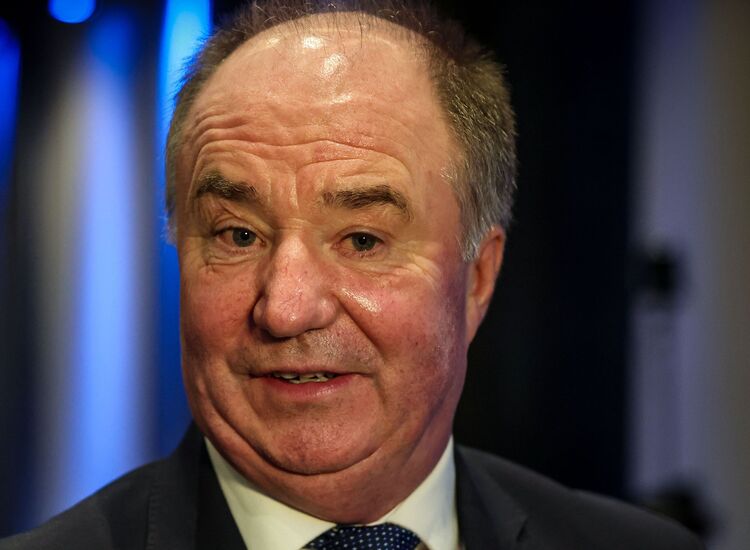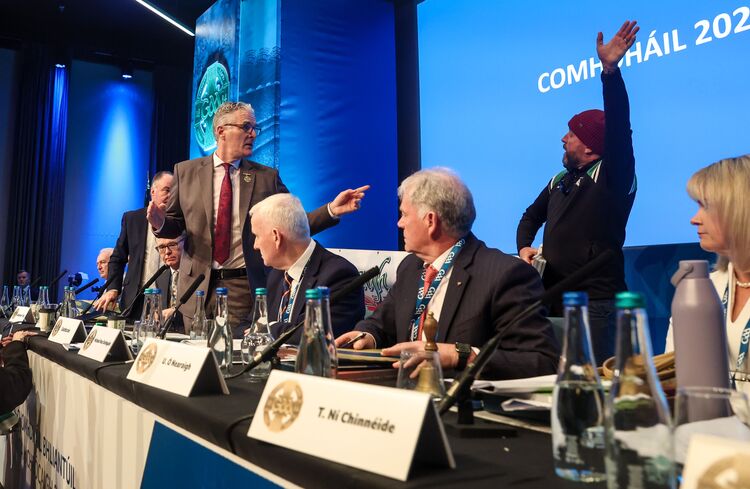Silver Screen /
By Karen Butler
Double Oscar winner Daniel Day-Lewis has admitted that playing America’s 16th president in “Lincoln” was initially a daunting prospect, but he insisted he found the courage to do so after he discovered through the man’s own words how accessible he was.
Directed by Steven Spielberg and written by Tony Kushner, the film is an adaptation of the book “Team of Rivals: The Political Genius of Abraham Lincoln” by Doris Kearns Goodwin. It follows the president through the tumultuous four months leading up to his 1865 assassination at the age of 56 and co-stars Sally Field as Lincoln’s wife Mary Todd Lincoln, Tommy Lee Jones as Congressional leader Thaddeus Stevens and David Strathairn as Secretary of State William Seward.
“It’s the man himself that invites you because he was so open and that was one of the most beautiful surprises about getting to know him,” Day-Lewis said of playing Lincoln.
“How insanely accessible that man was in a time that was physically dangerous, in his case, to be accessible,” the 55-year-old actor laughed. “The White House had an ever-open door. People could come and go. I think it was Seward that probably finally said, ‘Enough already!’ Because his open houses were just bedlam. He was accessible. Some part of him was. That became an opening, in a way. One almost felt welcome, so really he put me at my ease, strangely. Having first made me very uneasy, it was him that put me at my ease and gave me the thought, ‘Maybe I could try to do this.’”
The London-born actor, who has held dual British-Irish citizenship since 1993, is the son of celebrated poet Cecil Day-Lewis, husband of writer-director Rebecca Miller and father of three sons. Famously selective about his roles, he has starred in a string of critical darlings including “My Left Foot,” “Last of the Mohicans,” “In the Name of the Father,” “The Boxer,” “Gangs of New York,” “There Will Be Blood” and “Nine.”
Talking about how helpful the Irish-American Goodwin’s tome was as he prepared to play Lincoln, Day-Lewis noted, “I loved everything about that book, so that was a great beginning.
“But reading objective accounts about the life take you so far,” he added. “Most of what becomes more interesting to me at a certain moment is to try and grow towards a subjective understanding of that man’s experience, whoever he may be. In that case, the legacy of his writing was hugely important. You get such as sense of him through his wonderful… not just his speeches, but also stories he told and there are many contemporary accounts of those stories, which seem fairly accurate, give or take. But to get a sense of his thought and the movement through his thought towards a conclusion… that is a unique treasure, to have that available.”
Day-Lewis also praised Kushner’s screenplay for capturing the spirit of such a famous American icon.
“In such a rich way, Tony had already suggested the man through his intellect, through his humor and through his melancholy, both domestically and in public office, the contrast between those two things, which is always something that is like food and drink to me,” he said. “To see someone whose life is lived at one in the same time in that strange paradox of public and private.”
So, what was it like to share the screen with Field?
“The best thing I can say is that it was easy,” Day-Lewis recalled. “It was what it needed to be in the very best sense. I enjoyed every moment that I spent in her company. Even when we were tearing each other’s eyes out, I enjoyed every moment of that because she was real to me.”
The actor confessed it is sometimes difficult to walk away from such a larger-than-life character when the cameras stop rolling.
“You’re not quite sure what to do with yourself when it’s finished,” he said. “The investment is usually -- for most of us -- if not a total, then close to total, investment of that period of our lives in the process of telling that particular story, so it’s very hard to conceive any kind of life after it. Of course, there is one waiting, usually impatiently. In this particular case, I felt two things at one and the same time. One was a sense of immeasurable privilege at having been able to explore that man’s life and the other directly as a result of that was a sense of great sadness and loss that the time allowed me was now over. There’s never been a human being that I never met that I loved as much as him. Ever. And I doubt there ever will be.”
“Lincoln” is in theaters now.










